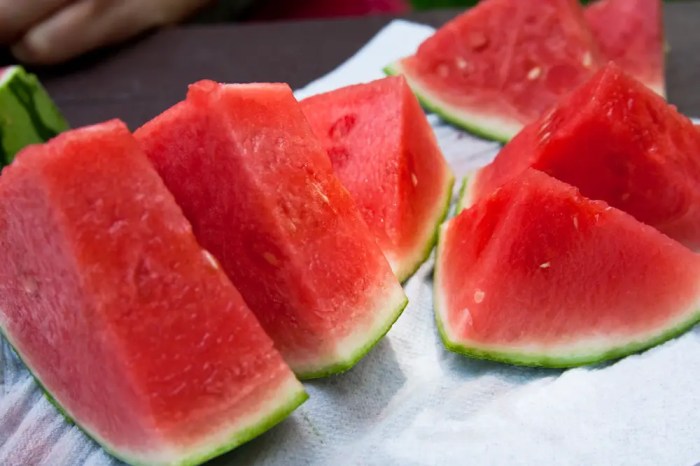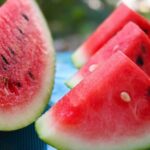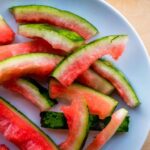As the topic of are seedless watermelons gmo takes center stage, this opening passage beckons readers into a world crafted with the gaya bahasa author tereliye, ensuring a reading experience that is both absorbing and distinctly original. From their origins and development to the genetic engineering involved, this comprehensive exploration delves into the fascinating realm of seedless watermelons, unveiling their unique characteristics, potential benefits, and drawbacks.
Prepare to embark on a journey that unravels the intricate tapestry of seedless watermelons, where nature’s artistry intertwines with scientific innovation. Discover the secrets behind their creation, compare their nutritional value and taste to traditional varieties, and gain insights into their cultivation and production. Along the way, we’ll navigate the market demand and consumer preferences that shape the popularity of these modern marvels.
Seedless Watermelons: Are Seedless Watermelons Gmo

Seedless watermelons, a delightful summer treat, are the result of meticulous plant breeding and genetic modifications. Unlike traditional watermelons filled with numerous seeds, seedless varieties offer a convenient and enjoyable eating experience.
The seedless watermelon, a testament to the wonders of genetic engineering, is a testament to the advances of our time. Yet, even as we marvel at its convenience, we must not forget the eternal verities. Like all fruits, watermelons have a finite lifespan.
How long is a watermelon good for ? This question, as simple as it may seem, holds the key to preserving the essence of this summer delicacy, ensuring that its sweet taste and refreshing crunch are enjoyed at their peak.
The journey of seedless watermelons began in the early 1900s with the discovery of a natural seedless mutation in a watermelon plant. This discovery sparked the development of various seedless watermelon varieties through selective breeding and hybridization techniques.
Unveiling the mysteries of nature, we delve into the realm of seedless watermelons, a testament to the wonders of genetic engineering. While the absence of seeds may intrigue, it sparks a question: does this marvel of science impact the longevity of cut watermelon? Seek answers to this enigma in our comprehensive guide on how long does cut watermelon last , where the secrets of watermelon preservation are laid bare.
Returning to our exploration of seedless watermelons, we ponder the implications of their genetic modifications on their susceptibility to spoilage, a fascinating facet of the natural world.
Characteristics and Features, Are seedless watermelons gmo
Seedless watermelons stand out with their unique characteristics that distinguish them from seeded varieties. These features include:
- Absence of Seeds: As the name suggests, seedless watermelons are devoid of seeds, making them easier to eat and prepare.
- Crisp and Juicy Flesh: Seedless watermelons possess crisp and juicy flesh, offering a refreshing and satisfying bite.
- Thin Rind: The rind of seedless watermelons is typically thinner than that of seeded varieties, making them easier to cut and serve.
Popular Varieties
Over the years, numerous seedless watermelon varieties have been developed, each with its own unique flavor and characteristics. Some popular varieties include:
- Sugar Baby: A compact and sweet variety known for its small size and high sugar content.
- Crimson Sweet: A large, oblong watermelon with a deep red flesh and a balanced flavor.
- Jubilee: A seedless watermelon with a yellow rind and a crisp, juicy flesh.
Seedless Watermelons vs. Traditional Watermelons

Seedless watermelons, a modern horticultural innovation, have gained popularity due to their convenience and perceived nutritional benefits. However, it is essential to compare them with traditional watermelons to understand their differences and make informed choices.
The question of whether seedless watermelons are GMOs remains a topic of debate. However, if you’re looking for a fun and creative way to depict this juicy fruit, check out our step-by-step guide on how to draw a watermelon . Whether or not they’re genetically modified, the allure of seedless watermelons lies in their sweetness and ease of consumption.
So, grab a slice and delve into the vibrant world of watermelon art!
Nutritional Value
In terms of nutritional value, seedless watermelons are comparable to traditional watermelons. Both are rich in vitamins A and C, potassium, and antioxidants. However, traditional watermelons have a slightly higher content of vitamin C and beta-carotene, an antioxidant that converts to vitamin A in the body.
Taste, Texture, and Appearance
Seedless watermelons typically have a sweeter taste than traditional watermelons, as the absence of seeds allows for a higher concentration of sugars. They also have a firmer texture due to their thicker rind and lower water content. Traditional watermelons, on the other hand, have a more refreshing and juicy texture with a balanced sweetness.
In terms of appearance, seedless watermelons are usually round or oval-shaped with a smooth, dark green rind. Traditional watermelons have a more oblong shape with alternating light and dark green stripes.
Advantages and Disadvantages
Seedless watermelons offer several advantages. They are easier to eat and prepare, as there is no need to remove seeds. They also have a longer shelf life due to their thicker rind. However, seedless watermelons may be more expensive than traditional watermelons and can be more challenging to grow due to their genetic modifications.
Traditional watermelons, on the other hand, are more affordable and easier to grow. They also have a more refreshing and juicy taste preferred by some consumers. However, they require more preparation time and have a shorter shelf life.
In the verdant tapestry of nature’s bounty, seedless watermelons stand as a testament to human ingenuity. Their genesis, shrouded in whispers of genetic modification, invites curiosity. Yet, as we gaze upon their crimson orbs, we cannot help but wonder: where can we witness the celestial spectacle of twinkling watermelons? Seek out the ethereal shores of where to watch twinkling watermelon , where the night sky transforms into a canvas of cosmic wonder.
And as the stars dance above, casting their shimmering light upon the glistening fruits, we are reminded of the enigmatic nature of our seedless companions, a testament to the delicate balance between nature and science.
Cultivation and Production of Seedless Watermelons
The cultivation of seedless watermelons requires specific growing conditions and techniques to ensure optimal fruit development and seedlessness. These conditions include controlled pollination, specific soil requirements, and specialized harvesting and storage practices.
Pollination Process
Seedless watermelons are produced through a pollination process that involves two different watermelon varieties: a female variety with three sets of chromosomes (triploid) and a male variety with two sets of chromosomes (diploid). The triploid variety is incapable of producing viable seeds on its own.
During pollination, pollen from the diploid male variety is transferred to the stigma of the triploid female variety. The resulting fruit contains a mixture of chromosomes from both parents, but the triploid nature of the female variety prevents the formation of viable seeds.
Growing Conditions
Seedless watermelons thrive in warm climates with well-drained soil that is rich in organic matter. They require ample sunlight and regular irrigation to support their vigorous growth.
To ensure proper pollination, the male and female watermelon varieties are planted in close proximity to facilitate cross-pollination. Beehives or other pollinators are often introduced to the field to aid in the pollination process.
Harvesting and Storage
Seedless watermelons are typically harvested when they reach full size and develop a deep red color. They are carefully handled to avoid bruising or damage.
The seedless watermelons that grace our tables are a marvel of genetic engineering, yet their safety remains a subject of debate. As we ponder the implications of consuming genetically modified foods, let us not forget the humble goat, a creature that has coexisted with humans for centuries.
While goats can indeed relish the sweet taste of watermelon, it is crucial to consider the potential effects of seedless varieties on their digestive systems. Can goats eat watermelon , seedless or otherwise, is a question that requires further exploration.
After harvesting, seedless watermelons are stored in cool, well-ventilated conditions to extend their shelf life. Proper storage helps maintain their freshness and prevent spoilage.
Summary

In the concluding chapter of our exploration, we reflect on the captivating journey of seedless watermelons, acknowledging their unique place in the world of fruits. From their inception to their widespread cultivation, these watermelons have left an indelible mark on our culinary landscape. As we bid farewell to this topic, let us appreciate the scientific advancements that have brought us this remarkable fruit, while remaining mindful of the ongoing debates surrounding genetic modification. May this discussion inspire further exploration and informed choices as we navigate the ever-evolving world of food and agriculture.
Essential FAQs
Are seedless watermelons safe to eat?
Yes, seedless watermelons are safe to eat. The genetic modification process used to create them does not introduce any harmful substances or alter the nutritional value of the fruit.
Do seedless watermelons have fewer nutrients than traditional watermelons?
No, seedless watermelons have similar nutritional value to traditional watermelons. They are a good source of vitamins A and C, potassium, and lycopene.
Why are seedless watermelons more expensive than traditional watermelons?
Seedless watermelons are more expensive to produce than traditional watermelons because the process of creating them is more complex and requires specialized techniques.






